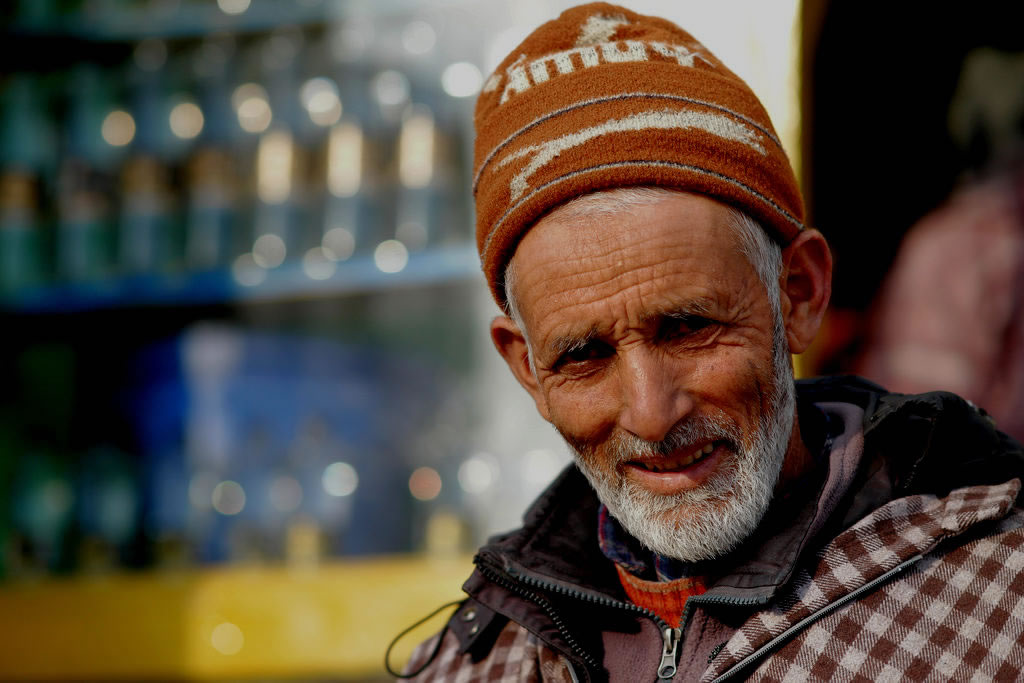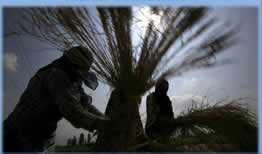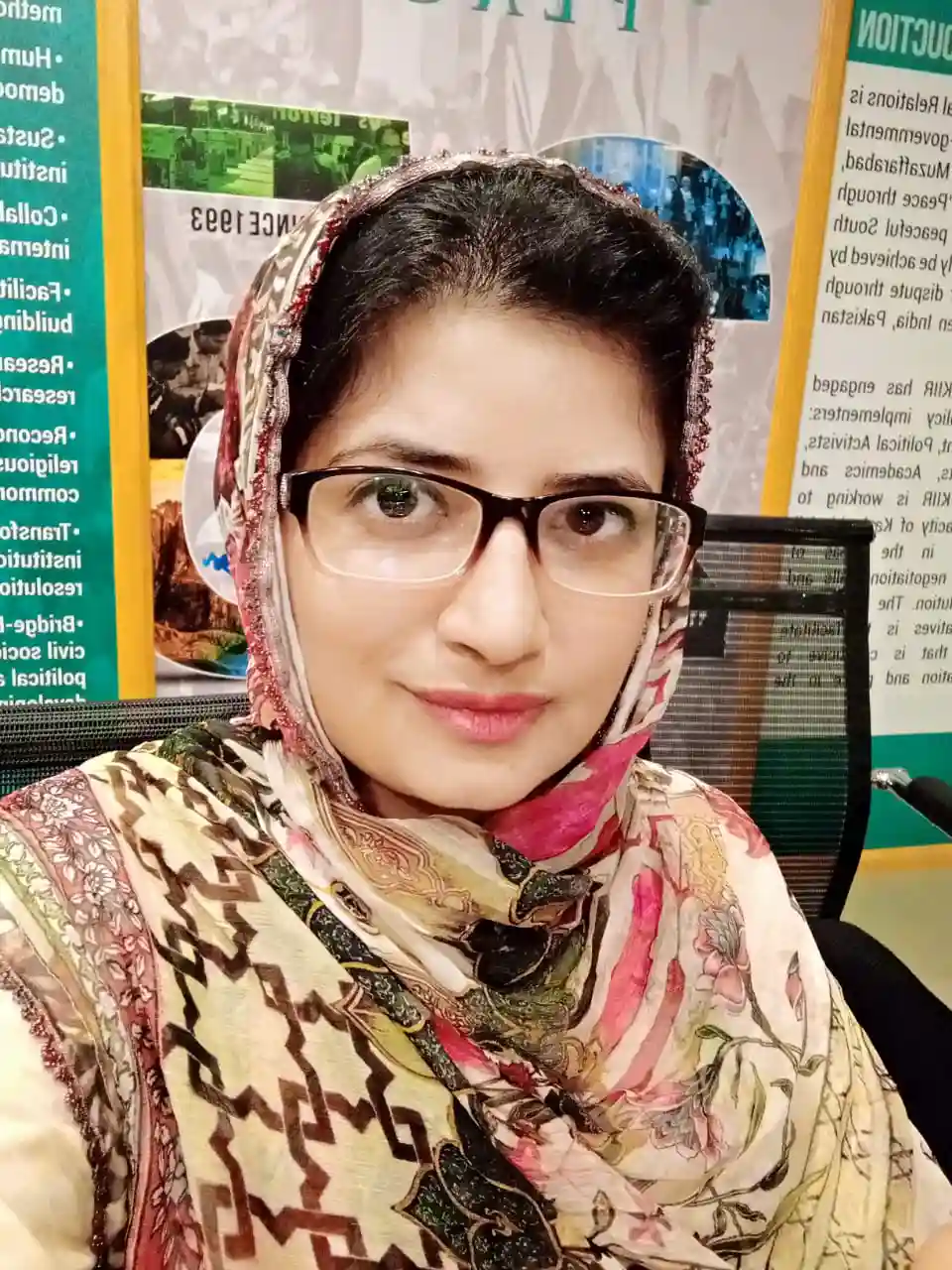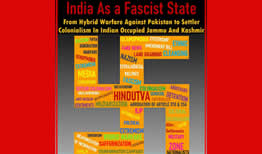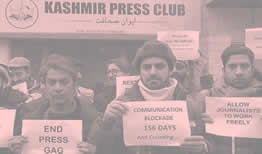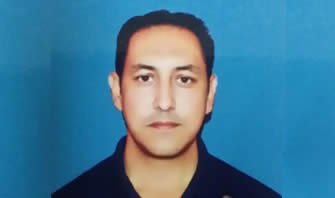Accessing the Impact of Indian Military Forces on the Lives of Women in Occupied Kashmir
Accessing the Impact of Indian Military Forces on the Lives of Women in Occupied Kashmir
ABSTRACT
The areas with the presence of military experience human rights abuses even when there is no active fighting or clashes. Militarization restrains freedom and independence, leading to intimidation and other forms of abuse. Kashmir is one of the regions in the world with the highest concentrations of military personnel. Women in Jammu and Kashmir are among the most severely impacted and suffering communities due to militarization.
By Sidra Bibi
International Relations 6th semester Women University AJK Bagh
They face challenges including human rights violations, economic hardship, emotional trauma, and healthcare issues, which erode their dignity and well-being. This paper addresses two main questions: What kinds of problems are women facing because of militarization? And Why does military presence create barriers for women in Jammu and Kashmir? This study applied both qualitative and quantitative methods of collecting data. The study reveals that a significant proportion of women’s lives are imperiled due to military presence, and militarization is hindering their ability to exercise their fundamental rights.
Key Words: Atrocities, Militarization, Armed conflict, Assaulted, Disappearance, Half widows, Detention, Violence etc.
Introduction
The quest for the right of self- determination remains a burning issue for numerous states around the world from decades. The ruling authorities are using their security forces to violate human rights, to control the liberties of its people and maintaining a regime of oppression. Millions of people are suffering enormously at the hands of states and the armed groups while the governments are shamelessly painting the clamour for human rights as a threat to security, law and order or national ‘values’. Jammu and Kashmir has been plagued by a long history of human rights atrocities, committed by Indian security forces, resulting in a widespread suffering and injustice.
In the seven decades of the conflict in the state of Jammu and Kashmir, women have always been suffered from the act of violence. Kashmiri women are facing brutality and suffered immensely in any case rather it is social, political, economic or in educational aspects, they suffered on all fronts. They are being raped, tortured, and ultimately they are silenced by death.
For the more than seventy years, the serene and majestic valley of Kashmir has been ruined by persistent conflict, transforming its once peaceful mountain into a volatile and heavily militarized zone, which has been marked by stubborn violence and dispute. The protracted dispute over Jammu and Kashmir has evolved into a disputed territory, fueling a complex web of political, military and humanitarian crises, between India and Pakistan, two nuclear powers. This entrenched conflict has devastating consequences for the region and its residents, eternalizing the cycle of brutality, fear and uncertainty as there is 1 Indian soldier deployed in Jammu and Kashmir for every eight civilians.
Kashmiri women are disproportionality affected by the longstanding conflict and because of militarization. This militarization leads to complex crises that encompasses various aspects of their lives. They are frequently subjected to violence, including sexual violence and harassment, which are often exacerbated by the chaotic conditions of ongoing military operations. The militarization of the region also leads to increased security checks and curfews, further limiting their freedom of movement and access to essential services.
Women in Kashmir are disproportionality vulnerable to various forms of exploitation and abuse, including sexual violence, this has been increased by the presence of military and paramilitary forces in the region. Security forces in Kashmir have been implicated in numerous cases of abuse and harassment with numerous reports showing and those who are responsible often go unpunished and accountability remains elusive.
Women are being vulnerable to psychological effects as an atmosphere of fear and trauma has been foster by the ongoing conflict and militarization. This sophisticated and complex environment has leaded to mental health issues like depression, anxiety, and post-traumatic stress disorder (PTSD) significantly impacting their emotional and psychological well-being.
Militarization is significantly affecting women's education in Jammu and Kashmir. The ongoing conflict and heavy military presence disrupt educational activities and create an environment where access to schools and learning resources is severely limited. Security concerns, frequent curfews, and the general instability of the region often force schools to close or operate irregularly, impacting students' ability to attend classes regularly.
The significance of this research is to highlight the hurdles faced by the women in the militarized zone and this study is important to shed light on socio-economic, psychological and gender based violence of the women in Kashmir.
The study aimed to investigate whether the presence of the military was creating obstacles for women. Studying the impact of militarization on women in Kashmir is necessary for understanding the harsh realities of violence and exploitation perpetuated by decades of conflicts and the Indian violation of human rights violation. This knowledge empowers to address needs and experiences of Kashmiri women and also to address the long term consequences of military presence in Jammu and Kashmir.
Theoretical Framework
Examining the situation in Jammu and Kashmir through a feminist lens helps us understand the specific and severe ways militarization impacts women. Feminist theory, especially the idea of intersectionality, provides insight into how gender, ethnicity, and political conditions combine to make life even more challenging for Kashmiri women during the ongoing conflict.
In Jammu and Kashmir, the heavy military presence and constant conflict have a particularly harsh impact on women. Feminist theory helps us see that this militarization reinforces a patriarchal system that marginalizes and exploits women. With the military's significant presence, women face extreme forms of violence, including sexual assault and torture. This situation shows how women’s bodies are used and controlled in conflict settings, reflecting deeper issues of gender inequality.
Sexual violence is a major problem in this context. Rape and sexual assault are used as weapons of war and intimidation. This isn’t just about individual acts of violence but also about reinforcing broader power imbalances. Reports of gang rapes and other forms of harassment highlight how militarization is used to control and intimidate women. This pattern of violence illustrates how gender-based oppression is intensified by the ongoing conflict.
Militarization also disrupts women's access to basic services like education and healthcare. The heavy presence of security forces restricts their freedom of movement, making it difficult for them to go to school or receive medical care. This limitation hinders their socio-economic opportunities and keeps them in a disadvantaged position. Feminist theory views this as part of a larger pattern of gender inequality, worsened by the conflict.
The psychological impact on women is also severe. Living in a conflict zone can lead to PTSD, anxiety, and depression. Feminist theory points out that these mental health issues are often compounded by societal expectations placed on women, which can worsen their suffering and hinder their ability to fully engage in society and the economy.
In summary, analyzing the situation in Jammu and Kashmir through a feminist perspective shows that the conflict does more than create general hardship. It intensifies gender-specific violence and discrimination. The heavy militarization of the region supports a patriarchal system that exploits and oppresses women, revealing the complex ways gender, power, and conflict intersect. Feminist theory calls for recognizing the unique challenges faced by Kashmiri women and addressing both the immediate violence and the broader systemic inequalities contributing to their suffering.
Problems women are facing because of militarization
Women in Kashmir faced numerous challenges due to militarization. Sexual violence, including rape and molestation, is a harsh reality, perpetrated by security forces. Many women are subjected to torture and detention, while other suffering due to enforced disappearances to their family members. The conflict has led to a significant number of widows and half widows. Access to healthcare and education is also severely impacted. Women are facing social isolation. Militarization has also impacted the women’s mental health, causing anxiety, depression and post-traumatic stress disorder (PTSD).
Social problems women are facing because of militarization
According to the National Crime Records Bureau’s report in 2021, Jammu and Kashmir witnessed a disturbing 15.62% surge in crimes against women (The Hindu 2022). Militarization is influencing badly the social life of women impacting their socio-economic life. Kashmiri women’s right to life, beliefs, opinion, autonomy, free will, movement, and religious activities by the unbearable attacks of pallet guns, illegal detention, shelling, torture has been devastated by the Indian military and para military forces stated under the laws of Public Safety Act and the Armed Forces Special Power Act. In the report released by the International Amnesty Organization these laws have been declared as draconian laws.
Education serve as a powerful engine for socio-economic growth, and women’s education plays a pivotal role in this process. Educated women become catalyst of change. Education unleashed the transformative power of women, thus they can expand their children’s intellectual boundaries, which results to upgrade their family’s socio-economic prospects. The progress of the nation is directly associated with the education of women as Napoleon had said “give me a great mother I’ll give you a great nation”. “If you educate a man, you educate an individual, if you educate a woman, you educate the whole family” once said by Dr. Karve. But in Kashmir women’s education is at great risk because of militarization.
According to a report by the Kashmir Media Service (KMS), Indian forces have perpetrated egregious human rights violations in illegally occupied Jammu and Kashmir over the past three decades. The report reveals that over 11,000 women have been subjected to sexual assault and gang-rape, while 2,342 women have been martyred. Furthermore, the relentless aggression and violence have left nearly 23,000 women widowed. Released to coincide with the International Day for the Elimination of Violence against Women, the report sheds light on the appalling suffering inflicted upon the women of Kashmir, highlighting the urgent need for accountability, justice, and an end to the ongoing oppression.
The area is heavily militarized as there are 80 soldiers in the area for every square mile that is a staggering ratio having approximately 800 civilians for every one soldier . Sexual harassment, insecurity, abuse, harassment are the serious consequences of the military presence in residential areas while the girls are disproportionality affected by the militarization of educational spaces, facing vulnerabilities.
When men die in war, the women are left to take care of families without fathers or brothers. They have to deal with the violence and cruelty of the military. These women show incredible strength and courage in handling these tough situations. It's important to acknowledge and help these women who face such hardships.
Women who find themselves in the agonizing situation of having husbands who have disappeared, but not been declared dead, are often labeled as "half-widows." This term captures the emotional, social, and economic purgatory they endure, trapped between hope and despair. Without official confirmation of their husband's demise, half-widows face significant challenges, including limited access to benefits, inheritance, and social support. Moreover, they often experience social stigma, isolation, and profound emotional trauma, leaving them in a state of uncertainty and vulnerability.
The term "half-widow" recognizes the distinct struggles of these women, suspended between grief and hope, as they await news of their loved ones. Half-widows bear the double burden of ambiguous loss, perpetually searching for answers about their husbands' fates, often to no avail, for years on end. Compounding their anguish, they face societal and economic marginalization as "non-widows," denied access to vital benefits like life insurance and government assistance due to the lack of official proof of their husbands' deaths. Many half-widows, having relied solely on their spouses for livelihood and education, are left vulnerable and without means. Furthermore, in certain rigid cultural contexts, they are forbidden from remarrying, lest they be branded adulterers, entrenching their isolation and despair. This precarious existence exacerbates their suffering, as they navigate a labyrinthine limbo, seeking closure and basic human rights.
A half widow share her painful experiences that: “The initial trauma of the disappearance and the resulting socio-economic hardships have adversely affected my life and the life of my children. The forced single woman status, patriarchy, and daily hardships have resulted in social stigma, humiliation and physical insecurity”
After the Indian government made a controversial decision to change the status of Kashmir, the situation in the region got much worse. There was a big increase in sexual violence and harassment. Some men in Indian made disturbing comments on social media, saying that they wanted to marry Kashmiri women because of their fair skin. This was after the Politician from the ruling party BJP made a statement that encouraged the men to marry Kashmiri women which was just disrespectful and objectifying.
Psychological problems
Armed conflict is a prevalent and devastating global issue, creating chaos on various aspects of life and causing far-reaching societal breakdowns. Its impacts are multifaceted, affecting economic, social, political and cultural structures also leaving the long term psychological trauma. The Indian armed forces are breaching the premier component of human which is the right, that despite of gender, religion, race, caste, ethnicity, humans are treated with uniformity. The protracted conflict in Kashmir has taken a devastating toll on the mental health and well-being of Kashmiri women, rendering them vulnerable to self-destruction tendencies. In 2018, a study exposed a mental health crisis in Kashmir, with 17,000 people, mostly women, succumbing to suicide. This heartbreaking figure underscores the devastating consequences of the region's protracted conflict on its citizens, especially women, who bear the brunt of trauma and emotional distress. Once said by gynecologist that “ Conflict has resulted in many psychiatric problems in women, including depression, PTSD and anxiety which directly affect child birth”.
Physical problems
Militarization in Jammu and Kashmir has led to widespread culture of rape and sexual violence against women. There is the environment created by the unchecked security forces where women are vulnerable to sexual assault, harassment, and exploitation. Rape perpetrated by armed forces in Jammu and Kashmir represents a grave and deeply troubling facet of the region's protracted conflict, highlighting severe violations of human rights and systemic abuse of power. Rape and sexual violence against women often occur in the context of military operations, particularly during crackdowns and search operation. When men are detained for identification, women are left vulnerable to sexual assault in their homes (Waqar 2022). As per Kashmir Media Service, the region of Kashmir has witnessed a distressing trend of sexual violence, with a stagerring 11,224 reported cases of sexual assault between 1989 and 2020. One of the most heinous instances was in 1992, when staggering 882 Kashmiri women were subjected to the unspeakable horror of gang rape (Iftikhar 2024). Sexual violence has been employed as a weapon of war, aimed at humiliating and controlling Kashmiri women. The women in Kashmir are most wicked sexual violence perpetrators in the world. A staggering 12.8% of respondents in a study revealed that they had endured sexual abuse, underscoring the widespread nature of this heinous crime. As per the report of Kashmir Media Service, from 1898 to July 2024, 11,264 women became the victim of gang raped.
Case Studies
Mubina Gani, a young bride, in May 1990 on her way from wedding ceremony to her husband’s home was subjected to a horrific act of violence. She was raped and detained by the Border Secuirty Forces and raped her aunt also. One man killed and several other injured when the security forces start firing on the party. After the occurrence of event, in the native and int’l press this incident was published. The instructions were given to the police by the Indian government to hold the investigation of the incident. The Indian security forces never be accused nor punished though the inquiry commission found that the women had been assaulted and abused.
In July, 1992 in the village of Haran in the western side if Srinagar, Indian army started search operation. Two women in the Haran town were raped by the five Indian Security Forces. International Humanitarian Organizations requested to Indian government for investigation of the incident but the government of India remained silenced.
On August 1991, Zulekha living in Shalibhatta , was on the morning walk with her mother. While walking she was abducted. Then she was brought to forests and molested. There is an another case that shocked the world, when the Indian army seal off the Poshpora and Kunan. These are the two villages of Kashmir division in the district of Kupwara. In the mid night of February 1991 there started a search operation by the Indian forces. There forces gathered all the men at one spot, while womens were alone there in their homes as the men were convened. Many of the women were gang raped during the search operation by the blind drunk army officers. These women include the handicapped, minors, and pregnant women who were cornered at their homes. The ages of these victims lies between twelve and approximately eighty year old.
16 cases of rape were even reported during the COVID-19. Furthermore cases of sexual harassment or molestation of 64 victims were there in the occupied Kashmir region during the lockdown. A woman, named as ‘Rubina Bano’. She is the mother of three children from Srinagar. In the aggravating curfews and increasing clashes in early 2024, she was enforced to escape from her home. Along with the Bano’s family the violence in Indian Illegally Occupied Jammu and Kashmir has fragmented many families there in the region.
Military presence creates barriers for women to access education and other essential services
War changes everything for women and girls in Kashmir. They face financial struggles, social stigma, and legal problems. When a loved one is hurt or goes missing, it's even harder. Kids' education suffers, and families can't get the government help they need, making things even tougher.
The Indian military’s presence in Jammu and Kashmir perpetuated a cycle of oppression, depriving women of their fundamental rights and freedoms. This prolong occupation has enslaved not only the current generation but also risks perpetuating a legacy of subjugation for future generations. In compliance by a comprehensive report by the research Section of Kashmir Media Service reveals a disturbing pattern of state sponsored terrorism by the Indian troops in Indian Occupied Jammu and Kashmir. The occupying forces are conducting daily operations committing widespread human rights abuses. The aim behind these actions is to generate an extensive climate of fear among the Kashmiri people. Ironically, India’s actions are tantamount to self-destruction, pitting the nation against its own citizens, particularly women.
For mortifying the entire community, regrettably, by attacking on the women, India is using the weapons of sexual violence. Thus the parents are hesitant to send their daughters to educational institutes as the military presence creates a sense of fear. In Indian Illegally Occupied Kashmir (IIOK), the heavy military presence has created serious obstacles for women trying to access education. The armed forces frequently impose restrictions on movement, enforce curfews, and maintain a constant atmosphere of fear. This makes everyday life incredibly challenging and unsafe for women and girls, often discouraging them from going to school or university.
The situation is exacerbated by incidents of violence and harassment that occur in this militarized environment. Families become increasingly hesitant to send their daughters to educational institutions due to concerns for their safety. This fear of violence, combined with inadequate protection, creates significant barriers to education for women.
Moreover, the military's focus on maintaining control often leads to a diversion of resources away from the education sector. As a result, schools become underfunded and poorly equipped, which further limits the quality of education available to women. In summary, the military presence in IIOK contributes to a climate of fear and insecurity that directly impairs women's ability to pursue their education and reach their full academic potential.
Kashmiri women are dependent on their males. When the men in Kashmir families go missing or are killed, their families struggle to survive. The women are left to care for their loved ones without the main source of income. This means they often go hungry, can't afford basic needs like medicine, and worry about what's next. To keep their families safe, women take on new roles and work hard to make ends meet.
Recommendations:
● There must be a commission for women. This commission should work like a court and have the power to deal with evidence. The idea is to have an independent group that watches over women's rights because many women might not know all their rights. This commission would check the laws that affect women in the state, suggest ways to make things better for women, handle cases where women's rights are violated and help women in need.
● The army must hold accountable for their actions, this can prevent harm to innocent people and women. The Armed Forces Special Powers Act (AFSPA) shields security forces from prosecution for human rights violations, giving them too much power. This law allows them to shoot to kill, arrest without trial, and detain without a warrant. To improve AFSPA, it should be made more transparent and accountable. The army should share their actions to punish those at fault with victims to resolve cases properly. Ultimately, AFSPA should be answerable to the people and face consequences if found guilty.
● The state of India needs to make sure it stops and prevents all kinds of violence based on gender during the long conflict in Kashmir, like using rape as a weapon to shame, degrade, and scare the Kashmiri women. This violence violates their physical and sexual rights and should be legally punished. India should create and enforce effective ways to prosecute violence against women in Kashmir. Those who commit abuse must face justice and be held accountable for their crimes.
● Additionally, India should allow the people of Kashmir to choose their own future by organizing a fair and unbiased vote with the help of the United Nations’s resolution.
Conclusion:
Decades have been passed but the violence and unrest still be seen in the ‘Paradise’ named as Kashmir, once known for its beauty but now turned into hell fire after the India’s illegal occupation. Since from 1990s there can be seen the huge number of human rights violation in the Occupied Kashmir. Kashmiri women are also the victim of the military forces. Still they are fighting the battle against the Indian armed forces. They are raped, molestated, fleed from their homes, depriving from their basic rights. Many of the women are widows and half-widows after the dismissal of their husbands. These women keep on struggling for their rights of self-determination and independence. There is need that the major powers of the world and the organizations like UN must pay their attention to the matter and the security forces of India must held accountable for their inhumane behavior.
BIBILIOGRAPHY
Iftikhar, Muhammad Omar. 2024. Suffering in Silence. May. Accessed August 2024. https://southasia.com.pk.
Malik, Laraib. n.d. "Psychological Impacts of Conflict: Case Study of Kashmiri Women." Psychological Trauma in Women of IOK.
Neogi, Devina. 2022. "Women's Struggles in the Kashmir Militancy War." Journal of International Women's Studies 1.
The Hindu. 2022. Crimes against women in Jammu and Kashmir go up by 15.62% in one year; more than 7,000 accused arrested:NCRB. September 03. Accessed August 17, 2024. www.thehindu.com.
Waqar, Aimen. 2022. Sexual Violence in Indian-Occupied Kashmir. july 30. Accessed 08 17, 2024. https://rsilpak.org.
Related Research Papers
